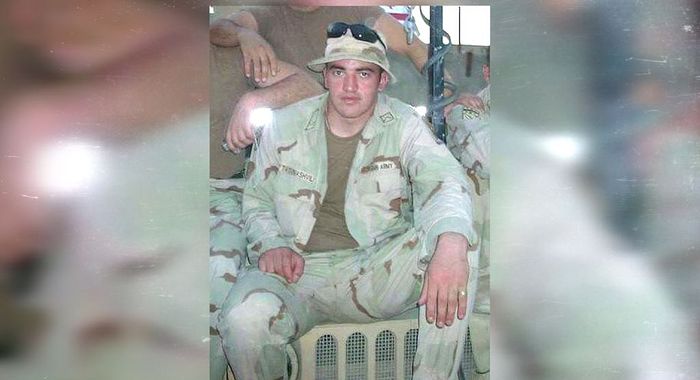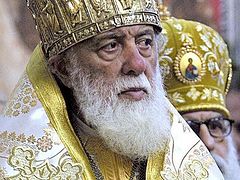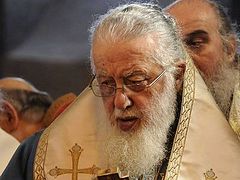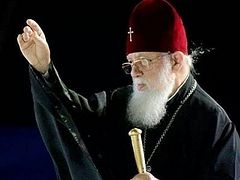Tbilisi, March 2, 2018
The heads of the Georgian and Russian Orthodox Churches have an opportunity to play an important role in resolving a conflict that has drawn international attention.
His Holiness Catholicos-Patriarch Ilia II of Georgia has stated that he will send a letter to His Holiness Patriarch Kirill of Russia with a request to render assistance in the issue of transferring the body of Georgian citizen Archil Tatunashvili who died on February 23 in detention in South Ossetia, the head of the patriarch’s charitable foundation Lasha Zhvaniya told journalists, Interfax-Religion reports.
Tatunashvili is a 35-year-old native of Akhalgori Municipality in South Ossetia who had been living in Georgia, reports Civil.ge. His family reports that he had gone to visit his house in Akhalgori on February 22, but then they “lost contact with him.”
Pat. Ilia reported that he met with Tatunashvili’s family on Thursday evening after they turned to him with a request to help in the matter. The patriarch promised to use all resources at his disposal to help bring Tatunashvili’s body back from Tskhinvali, the capital of South Ossetia.
As Zhvaniya noted, the letter will be followed up by a telephone conversation.
South Ossetian authorities say Tatunashvili was plotting terrorist attacks in the region, RadioFreeEurope reports, and that he attacked officers while being transferred to a detention cell and “sustained injuries, was knocked down, and rolled down the stairs,” later dying in the hospital of heart failure.
The deceased’s family denies the story, maintaining instead that he was tortured and killed by Tskhinvali security forces, and that the repatriation of his body was being intentionally delayed to hide the traces of torture.
Tskhinvali authorities refused to comply with the Georgian State Security Service’s request to return the man’s body, saying several more days were needed for the examination of his body.
The Georgian Foreign Ministry has directly blamed Russia for Tatunashvili’s death, as the Tskhinvali authorities are backed by the Kremlin. Georgia’s parliament also adopted a draft resolution today that blames Russia and urges Moscow to secure the safe return of two other Georgian nationals who were briefly detained along with Tatunashvili and whose fates are currently unknown.
South Ossetia declared its independence from Georgia on May 29, 1992 during the course of the 1991-1992 South Ossetian War. Abkhazia later did the same, adopting its constitution on November 26, 1994. The 2008 South Ossetian War between Georgia on one side and South Ossetia, Abkhazia and Russia on the other led to the expulsion of Georgian forces from the territories and Russia’s recognition of the independence of the two regions. Russia states that it was defending South Ossetia from Georgian aggression, while Georgia believes the war was an act of Russian expansionist aggression.
In 2011, Pat. Kirill told Pat. Ilia that South Ossetia and Abkhazia would remain within the ecclesiastical jurisdiction of the Georgian Orthodox Church.




